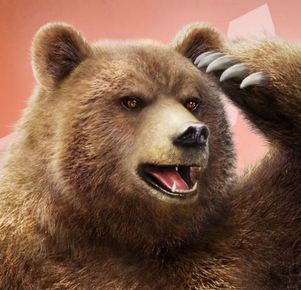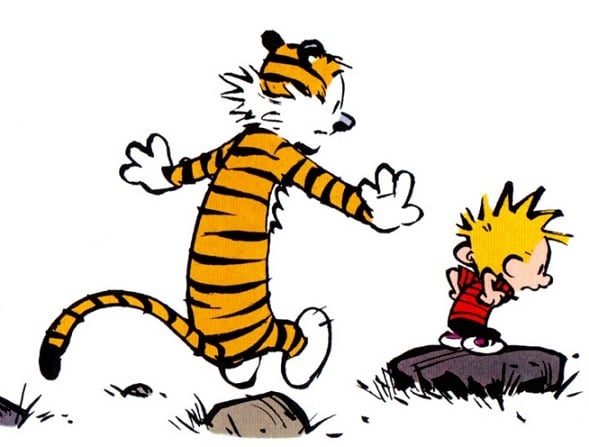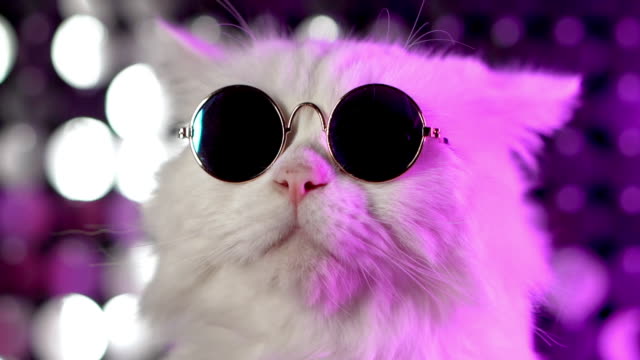I mostly listen to smaller bands and buy their stuff on Bandcamp. It sucks that Bandcamp was sold (twice now) and will probably go down the shitter, but that seemed like a more sustainable model. Also buying music is nicer than renting it for me.
Team Bandcamp as well. I’ll be sad if it degrades. My hope is it survives long enough to be discovered by everyone as they get sick of the shit music streams on Spotify, Pandora and their ilk
Man, a lot of people here don’t understand how the music industry works. From the perspective of someone who’s been loosely following the music industry, what I’ve learned is that it doesn’t matter if Spotify gave up 2/3rds of their revenue, or 100% of it, the artists would still make fuck all.
Why?
The labels love taking their cuts and as a result, artists make very little. Instead of taking the blame for giving artists a <10% cut of the label’s revenue from their music (my understanding is that it’s pretty common for musicians to get <10%, sometimes <5% if you’re on a particularly shitty label), the labels are blaming platforms like Spotify.
Now, I’m not saying that Spotify is blameless, however I think there’s a lot of misdirection from the labels going on. I don’t remember anyone complaining about pre-spotify services like Pandora Radio for not paying out enough when they were largely ad-supported, which is another reason I’m not totally buying the, “it’s cause it’s free” argument either.
Fuck, remember Pandora?
Do you know how the merch shops works? Spotify seems to be a reseller of some kind. How many % of the money is going to the artist usually?
Not talking about Spotify merch, didn’t even know that was a thing. I was talking about buying merch from the artist themselves.
Indies are on sporify too. Spotify pays them shit too. Label or not.
They just changed the rules so that if smaller artists don’t get a certain number of plays they don’t even get a payout.
With less than 1000 streams per year.
This is solely to kick out the AI generated music, which is already taking a significant share of the payout from the musicians.
This change is not against smaller artists, but for them.
I kind of call bullshit on that take.
There’s definitely AI generated music that can surpass 1000 streams per year and many real bands that cannot.
Less than 1000 streams is like a band being unable to fill up a 100-person venue for a 10-song set once in a year (for the kind of band that plays live gigs). Opening acts for obscure bands play more than that. If you’re that unpopular, you’re hardly a band at all.
They didn’t say all AI generated music gets less than 1000 streams; they implied most of it does.
But then are you implying that those bands that are that unpopular are undeserving of getting paid even a little? Because they’re not a “real” band?
Stuff that nobody wants to listen to just takes up space and clutters up searches, making it harder for people to find the stuff they actually want. It had negative value for the platform and for users. That’s why they went the AI stuff gone. If a few actual bands miss out on a few dollars of revenue as a result of Spotify getting rid of the outright junk, I’m not gonna shed a tear over it.
I thought it was 2,000?
Pandora didn’t replace buying music. They did not add the “on demand streaming” option until after Spotify was prevalent.
I still use pandora free daily!
Labels are an outdated concept that needs to die. Now that you can find any music from just a quick search artists shouldn’t have to rely on them, at least not as heavily, for advertising.
Why isn’t there some kind of genre music search for all artists without a label, Foss of course. From what I understand, when you’re starting out in music, getting people to hear it is the hardest part.
There was a very, very brief moment from about 2005 to 2011 or so where there was money to be made directly by artists on iTunes or the other music stores where the tracks were like 99 cents each.
But people stopped buying as soon as Spotify became popular, and now any artist that wants to release on Spotify without a label still doesn’t make much money.
Ehh, you’ve got a different but similar problem these days. Before, it was hard to get the word out so even finding new bands was difficult. Now, there are so many artists that you’ve got to find a way to stand out. Still need marketing. That’s what labels provide.
You don’t need to give up the rights to your music to a third party for them to do marketing or handling legal matters for you. You just need to pay them for their services. And you should be able to choose from several competitors in the market, based on what they offer and what you want/need/can afford. So yeah, record labels shouldn’t exist anymore.
It’s not needed, but for some reason artists keep signing, so there is probably something they provide that makes it worth it
It’s because it’s the only game in town.
Relatively “large” truly independent bands like KNOWER are starting to give true home recording a base of proof of functionality.
Power to bandcamp.
You’ve got my heart working overtime. Louis Cole is a monster.
Artists aren’t forced to sign a contract with a label. They do it because they want to.
They do it because the label will often invest a million dollars in the artist upfront before the songs are even available for the public to stream.
Good recording studios are expensive to hire. And if you want a video track to go with it… those are even worse.
Uhhhh, dunno about that one. Pretty sure it’s public knowledge labels will go to almost any lengths to ensure artists cannot be independent, especially when they’re small. Good recording quality is quite readily available in many large cities, either as a paid service (which sometimes is still outbid by labels), or through a public library. Many of the issues of “labels investing in artists” loop back around to “labels have made it physically impractical or impossible for the artist to invest in themselves”.
Lots of people still use, and even pay for, Pandora.
…they paid Joe Rogan $100M to be exclusive so they must be making profit somewhere…
I believe Spotify is largely responsible for its own financial struggles. Knowing that 2/3 of their revenue goes to the greedy labels, they should consider scaling back on operational costs and excessive investments in advertising and celebrity podcast deals.
In a way, it serves them right. Spotify plays a significant role in transforming music into a product akin to fast food, prioritizing mass consumption over artistic value. This approach not only impacts their profitability but also contributes to a broader devaluation of music as an art form.
So fuck Spotify.
Spotify plays a significant role in transforming music into a product akin to fast food, prioritizing mass consumption over artistic value.
Have you never heard of Top 40 before?
Absolutely, I’m aware of the Top 40, but my point is about how services like Spotify are amplifying the dominance of this type of quickly digestible music. While the Top 40 has always reflected popular tastes, Spotify intensifies the focus on ephemeral hits rather than promoting a diverse range of music and independent artists. Additionally, the technology behind Spotify, where artists or labels aren’t compensated if a track is skipped within the first 30 seconds, further influences this trend. It shapes not only what we listen to but also how we value music.
I don’t agree with that at all. I’ve started listening to 10x more small artists via Spotify than I ever had through any other medium. They’ll never be on the radio or anything like that. Spotify has recommended these artists based on what I listen to, I haven’t sought them out.
I don’t believe radio pays artists anything do they?
My experience has been different. Even without Spotify, I’ve found a large number of new bands over the years through websites, reviews, and music videos on YouTube. This shows that there are multiple ways to discover diverse music.
My main concern is about the broader impact of streaming on the music industry. While Spotify can be a fantastic tool for discovering music, it’s important to consider how its business model and algorithms might influence musical production and consumption patterns. Yes, artists do receive royalties from radio plays, but the system is different from streaming. My worry is that the streaming model, especially in terms of payment structures and engagement strategies, might inadvertently prioritize certain types of music, potentially overshadowing the rich diversity in the music world.
I think you’re twenty years too late on that worry. Most artists didn’t make any money once iTunes came out and singles became popular.
ok. they should get a job then. pull themselves up by their bootstraps
This is probably why you get a nearly endless stream of covers and remixes if you just let Amazon Music play random music.
If you want to support an artist pirate their music and see them in concert.
This is outdated and bad information. Most small artists lose money touring. Bigger artists might break even.
If you can buy merch, do that, if you can buy physically do that. Spotify is gonna pay pennies for thousands of streams, so nothing you do on spotify is going to benefit an artist. But “pirate and see live” is probably gonna result in a negative bank balance for artists.
Nothing short of handing them cash in person is truly a guarantee. Really depressing how it’s turned out.
Bandcamp is a decent platform… for now
Has anything really happened since they were acquired by Epic last year?
Epic sold it to a company called Songtradr, who shortly laid off a good chunk of the staff. They haven’t done too much so far, but it could easily go south from here.
Faircamp might be a good avenue in the future.
That’s not a guarantee either unless you know how much they spent getting in a position for you to hand them cash.
I think Taylor Swift just about broke even, mostly thanks to my wife and her friends.
Some artists that people like may never come to their city
Buy merch
It’s rare for me to find merch worth buying, I prefer buying the music.
Maybe buying it directly from their website might be the better option in this case? 🤔
It’s about the effort artists make for merch, I don’t want to buy a t-shirt with a simplistic design or just a sentence on it
I meant buying the CD/music on their website
Unless it’s a ticketmaster concert because fuck them.
Lol. Yes, ticket service fees, venue fees, and reseller makerts is totally the best way to support an artist, especially if you live no where near a tour location.
“Support”
Nice try ticket Master!
deleted by creator
Profit can be distorted based on how much you’re paying your employees.
In this case royalties paid out to imaginary property holders means spotify is functioning exactly how it should. Those people are profiting, spotify’s employees are being paid. Everyone directly involved has more money than they need.
except tht artists, which is more the fault of the rights holders in this case really…
To determine if this company is actually a poor widdle guy or just trying to look like their hands are tied with respect to paying artists, look up how much Daniel Ek is worth, and then look up what he does with his money
You do know even without Spotify artists would be getting paid the same amount by their label?
Spotify splits 70/30, that 70% goes to the rights holder. So why aren’t the artists seeing it?
It used to be artists didn’t make money on albums annd only from merch at tours, nothing has really changed in the music industry.
Indies are on spotify, and spotify pays them badly, too.
And yet, they still aren’t even close to the highest paying service when it comes to musicians getting their cut.
https://dittomusic.com/en/blog/how-much-do-music-streaming-services-pay-musicians
It’s hilarious that Napster now tops the list. I use Tidal, myself, since it’s got great quality audio. Spotify is horrible quality for 2023.
as a young 20 year old i doubt those services have new music. Spotify has albums SAME day
im sure that works great for oldies like blink182 tho
They do
Spotify is horrible quality for 2023
To my surprise, even Spotify’s standard (not high or very high) is extremely difficult, if not practically impossible for the average consumer to differentiate from lossless (on better than consumer grade hardware). Upon hearing this, me and several friends decided to test it for ourselves by taking lossless files for several songs and resampling them to the same codec and bitrates that Spotify’s standard quality uses, then ABX testing the before and after with Foobar’s ABX and exclusive mode plugins (also tried the popular comparison website, but that’s apparently less accurate). One of my friends had access to a college studio, I have a dac and sennheiser, and the third had sony wxm4s. To our surprise, none of us could consistently differentiate the two. Its not perfect considering we didn’t grab the outputs directly from the streaming platforms, but that would’ve added extra variables like volume normalizing (louder sounds better).
Our conclusion is that the quality “difference” is likely placebo and probably a waste of bandwidth.
i figured having volume normalizer off would be the best quality
i think a lot of people that complain about the “bad” quality simply have the volume normalizer on, which makes the quality worse for some songs
I wholeheartedly disagree. I have more trained ears then most (worked in video production), but not by much, and when i got my AirPods Max, I thought they sounded awful at first. They were crunchy and dithered sounding in this weird way. I was gonna return them, but I did some testing, and discovered that I was hearing Spotify compression. I turned up the quality as high as it would go in the settings, and that made it a little bit better, but I could still hear it, and can to this day. I did some further testing by signing up for a tidal free trial, in addition to Apple Music. Listening in lossless was an entirely different experience, I could definitely tell the two apart blindly, without even specifically looking for sound quality. There were like 2 to 3 instruments in a given song that I wouldn’t be able to pick out in the lower quality audio, that I could easily pick out in the lossless audio. You have to have a pretty decent pair of headphones to be able to hear it, but some of the higher and consumer stuff can definitely hit that level, and when you do, it’s not something you have to go looking for, it sounds very obvious.
Do you realize AirPods Max/iPhone is capped at AAC/256 kbps over BT, and needs DAC -> ADC -> DAC to use a wired connection?
There may be other factors at play, Apple quite likes to compress stream data between their own devices, even on “standard” protocols (just look at their monitor collaboration with LG where they did the same thing to exceed the max resolution of an existing display signal). Regardless, there is a difference, and it is not a small one. It was immediately obvious to me after listening to a single song. Something about the pipeline is crunching audio to the level where it’s obviously degraded. This isn’t audiophile grade splitting hairs and “I think it sounds ever so slightly better with these gold cables” it was like the difference between 480p and 1080p video to me, enough to be actually annoying during normal listening, even if I was actively trying to forget about it.
Ok it sounds like what you experienced was caused by something completely different than detecting an audible difference between Spotify’s 320 kbps AAC encoding and lossless encoding, encoded over a 256 kbps AAC BT codec, but if you actually want to do a true A/B blind test of 320 kbps vs. lossless on your setup, here’s the place to do it:
https://abx.digitalfeed.net/ (select the first link - “The statistically valid Tidal test to make”)
Yep, absolutely this.
You cannot listen to music losslessly with AirPods Max, cabled or not.
From Apple’s own site: “The Lightning to 3.5 mm Audio Cable was designed to allow AirPods Max to connect to analog sources for listening to movies and music. AirPods Max can be connected to devices playing Lossless and Hi-Res Lossless recordings with exceptional audio quality. However, given the analog-to-digital conversion in the cable, the playback will not be completely lossless.”
If someone thinks AirPods Max sound amazing, they’re agreeing how good compressed audio can sound, whether they realise it or not.
If someone thinks AirPods Max sound amazing, they’re agreeing how good compressed audio can sound, whether they realize it or not.
Yes! (Kinda) I’m not saying lossless music is the end all be all, and honestly in normal life I prefer non-lossless, because its SOO much less data, and you can hardly tell the difference in normal listening anyway. What I was trying to express was how bad badly done compression can sound. Good compression exists, and it can sound nearly identical anecdotally, but there is a limit to how low you can go before you start hearing it, and I’m trying to say that I think Spotify has chosen a rate below that level by default. I switched to a higher profile and the problem is mostly gone.
I’m not trained in anything useful but I had a similar experience. It was like upgrading from a 720 screen to a 4k screen.
How much money would they want to skim to distribute the music? 33-66 split doesn’t sound so bad considered that they don’t produce the music, sign artist, promote them, etc
They can always start their own label if they believe that vertical integration will be more profitable for them.
They tried that with podcasts and it didn’t go as planned
33% is a massive amount for effectively just being a download service. massive
For reference, the Steam store of the gaming distributor Valve charges 30% of each sale, however the Steam service provides quite a bit of incentive. Having community and discussions easily accessible, cloud storage that links to screenshots and saves, branches, I’m sure there’s more.
Meanwhile Spotify gives you, what, playlist creations?
Because servers and traffic are free. Totally forgot how you don’t have to pay the people keeping the service alive either. A steam game you download once? Maybe once a year? Music gets streamed (downloaded) every single time unless you decide to download it. Can we maybe not pretend like Spotify does fucking nothing?
servers and traffic are basically free, it’s very low cost - their expenses are salaries not servers.
I didn’t mention servers because that is their only cost next to employees.
If they aren’t paying artists well, well what’s the point of having servers.
Maybe can we not pretend like Spotify is some up and coming startup that barely breaks even because of their benevolence?
Because apparently these servers cost enough that even with 400mil users they aren’t making profit? The point of Spotify is giving paying customers what they want so that hopefully Spotify can make a profit. Unsure why that’s so unacceptable for you? And small artists have been paid like shit long before Spotify was an idea. Take that up with the actual music industry. Or maybe accept that turning your hobby (making music) into a job just doesn’t pay the bills for everybody that tries. I have no idea how you can blame Spotify for payouts bigger than on YouTube or Twitch when it’s the music industry fucking with the numbers.
Many of their executives make over $300,000 and the CEO is a billionaire. I don’t know how you can’t blame Spotify for payouts.
Servers and employees. Nothing else. Got it. No office space, no advertising, no royalties.
What a genius business plan. No wonder they’re so successful.
Then I’m sure their executives would be happy to take a pay cut to make the business profitable.
Spotify takes 30 %, too. The ‘one third’ in the headline is just rounding.
And the question should be if digital markets and platforms should take 30 % or not. Because every platform does so from Steam to Apple App Store to Spotify.
Besides that Spotify offers more than Steam imho. Playlist creation, discovery algorithms, individualized playlist generation, AI DJs and if you consider Steam to also be a social platform, Spotify is too.
the actual article we are commenting under thinks its outrageous that Spotify only gets 30% and things artists should get less. so it’s not “should they take 30% or not”, the question posed is “why are the greedy labels not letting spotify take even more” for some reason, madness
Meanwhile Spotify gives you, what, playlist creations?
Distribution is hardly free. There are massive overheads - do you know all the details of sales tax law in your own country? What about in hundreds of other countries? They’re all different. And what about refund laws? That’s also different in each country. If someone writes you an email in a language you don’t even recognise… do you just ignore it? To give one example in my country if a customer asks for a tax receipt after a purchase, you are required by law to give it to them. That’s hard to comply if you don’t speak the same language as the customer. Spotify handles all those headaches for you.
What if your bank tells you they have refunded the payment someone made to buy your album, pending an investigation into wether or not the cardholder actually authorised the payment and received what was advertised. Can you prove it wasn’t a stolen card? Can you prove the album was delivered to the customer? The bank isn’t going to do that for you - they’re happy to just refund the payment (and might charge the seller a $50 processing fee…). Spotify is able to provide proof and will fight people who demand unreasonable refunds. You probably can’t prove it, which means anyone who wants a free album can just buy it and complain to their bank. And trust me, it will happen. Might not even be your customers asking for refunds - it might be a rival band that wants you to suffer. If there are too many refunds, the bank will just take way your ability to sell stuff.
Distributing the music is basically free these days - at least for the artist/label anyway. Artists can pay about ten bucks (per album) to various cloud services which will handle distribution - and that includes global physical CD distribution (via an online store, not retail stores). That cost is often $4 per disc and paid by the purchaser.
Recording an album and music video can cost a fortune, and marketing the album can cost an infinite amount of money. That’s where the record label spends most of their money and it’s not a fixed figure - it gets negotiated for each album. AFAIK the split between the artist and label usually varies depending on wether the label’s investment has been paid for yet. And marketing is an ongoing expense, the label can keep spending money on that indefinitely (and the artist probably wants them to keep spending money on marketing).
I call bullshit. Yeah I’m sure they spend 2/3 of their income on rights holders, mainly Joe Rogan, Ed Sheeran and Taylor Swift.
The average musician isn’t making shit, and yet the spotify execs are sipping champagne.
You know they don’t pay the artist directly? Like with physical the ones taking the biggest share are the labels… Also the average musician isn’t making shit cause compared to a very few bigger artists they represent an extremely low percentage of the overall streams on the platform.
The rights holders are the record labels. As much as artists want to complain about Spotify they should direct their criticism to their record labels.
Spotify is far from powerless in this arrangement too. Nobody is forcing them to be in this business.
Pretty sure Spotify is more powerless than you think. The record labels nearly burned their industry to the ground in the 2000s over digital piracy.
Netflix wouldn’t be around today if it wasn’t for their move into becoming their own movie studio thanks to just about every big Hollywood studio pulling out, arrogantly thinking that they can each run their own service for a bigger slice of the pie. Newsflash, it’s going really bad. Especially for Disney, who deserve everything coming to them.
I reckon if Spotify makes even a small move to undermine the big record labels, they would yank all the popular music. Spotify either wouldn’t last long or best case they down size into a niche music platform.
Basically the moral of the story is that Spotify should have followed in their footsteps and become their own record company.
Moral of the story is people should stop lowering their standards so those richer than them can be even richer.
Hold on, what’s going to happen to Disney? I got the impression they’re really eating into Netflix’ market share. They basically own a huge chunk of the content most people care about.
it’s going really bad. Especially for Disney, who deserve everything coming to them. <
I can’t like a statement hard enough. Amen.
What about independent artists?
If they were getting as many listens as Taylor Swift, I’m sure they’d be making bank. But they’re not. A listen ain’t worth a lot and never has been.
Taylor Swift somehow being a hallmark of the times makes me wish the whole world would end in a giant ball of fire.
deleted by creator
deleted by creator
I’m 30…and you? (kinda afraid to ask at this point lol)
She’s not the worst role model we’ve ever seen, so at least the world isn’t completely mad. I think her music is mediocre, and don’t understand the fanfare, but to each their own.
I think as a person she’s fine. But as a branding machine… meh.
“not making profits”
Just massive salaries and equity
deleted by creator
Yeah it’s all the fault of the rightsholders. Definitely not bad management.
Not that I’m a fan of rightsholders but this is more like shifting the blame.
400m subs x 100$ a year on avg = 40 billions in revenue. Even if only 25% e.g. 10 bil is retained by Spotify it’s a lot of money to maintain infra and pay stuff.
From the article:
The answer lies in the power imbalance between Spotify and its music suppliers, namely the major record labels that control most of the music streamed on Spotify.
Spotify licenses most of the music it streams from three companies: Universal Music Group, Sony Music Entertainment, and Warner Music Group, also known as The Big Three.
Together, The Big Three hold a 70% share of the music recording industry and a 60% share of the music publishing industry, forming a sort of unholy monopoly over the music industry.
…
The difference between having or not having The Big Three’s music catalog is a life-or-death situation for Spotify.
This gives The Big Three a lot of leverage over Spotify and forces it to pay them nearly 70 cents of every dollar it makes, leaving little room for profits.

























